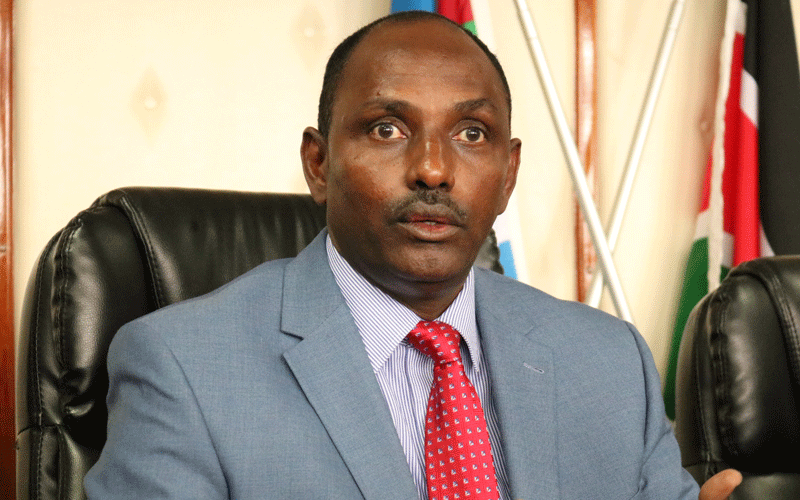Kenya’s fiscal deficit to grow further on Corona
By Steve Umidha, July 21, 2020Steve Umidha @UmidhaSteve
Kenya’s economy is expected to shrink further this year and any meaningful recovery will remain elusive until 2021 as negative impact of Covid-19 on revenue collection continues to weigh heavily on the country’s prospects.
“The financial year 2020/2021 budget saw a high uptake of semi-concessional loans worth Sh124.1billion and as such, we believe that Kenya will continue to face high debt repayment challenges,” projections from Cytonn Investments show.
The investment firm says uncertainty that hit the global financial markets as a result of Covid-19 pandemic will make it even harder for the government to access foreign debt, and this could see investors attaching a high-risk premium on the country.
“As a result of depressed revenue collection with the revenue target for financial year 2020/2021 at Sh1.9 trillion, we expect a higher budget deficit,” it says, adding that as a result of those prevailing challenges, additional borrowing from the domestic market will be required to plug in the deficit.
Total debt
The country’s current total debt is estimated at over Sh6.6 trillion, at the end of May this year compared to Sh 6.4 trillion in April and Sh6 trillion in February.
This is a concern that has seen the government turn to local loans to fund its budget.
Figures from the Central Bank of Kenya (CBK) latest weekly bulletin show that out of this debt load, total cash borrowed from the domestic market stood at Sh3.2 trillion while external borrowings stood at Sh3.49 trillion.
CBK’s weekly data notes commercial banks as the biggest holders of government domestic debt instruments at 54.93 per cent, followed by pension funds at 29.01 per cent.
Insurance companies hold 6.04 per cent of government domestic debt, parastatals ( 5.73 per cent) while other investors hold 4.29 per cent.
Treasury Bonds remain the favourite instrument for the state when seeking funds from the domestic money market.
At the beginning of the year National Treasury raised domestic borrowing for the just ended financial year by Sh84.63 billion, with Treasury Cabinet Secretary Ukur Yatani increasing the cash the government was targeting to borrow from domestic investors by 19.5 per cent to nearly Sh514.03 billion, for the year to June.
The adjustment was largely linked to the additional Sh55.23 billion expenditure for development that was contained in the national budget read last month.
Last month, credit rating agency Fitch Ratings revised the outlook on Kenya’s long-term foreign and local-currency default rating to “Negative” from “Stable”, citing the country’s rising risks to meet its borrowing requirements and debt payments.
The rating agency, also affirmed an Issuer Default Rating (IDR) of B+ and further downgraded the country ceiling to ‘B+’ from ‘BB-
It attributed the relegation of Kenya’s ratings to lack of a clear path towards government debt stabilisation as well as the projected impact of the Covid-19 shock on public finances and growth.
The pandemic has added further pressure on public finances and Fitch expects revenues in 2020 to contract in nominal terms for the first time since 2009 due to the economic contraction.
So far pecuniary measures by the government in its stimulus package to alleviate the impact on the economy have remained modest –but that could change if the impacts of the pandemic lasts a little longer judging by the rising number of cases in the last weeks since President Kenyatta lifted restrictions on partial lockdown to ease inter-county movement.
The negative outlook also reflected the prospect of a sustained upside pressure on government debt and additional downside risks associated with the global shock.
“The revision of the Outlook on Kenya’s IDRs reflects our view that the coronavirus shock will drive a sharp economic slowdown and deterioration in the budget deficit and government debt/GDP ratio in 2020, against a background of a weak track record of fiscal consolidation,” the rating agency said in June.
Economic fallout
Last week S&P Global lowered Kenya’s outlook from stable to negative and affirmed the B+ long term and B short-term credit rating.
Given the economic fallout from COVID-19, S&P Global projects that Kenya will record a slow GDP growth rate of 1.0 per cent in 2020 and rebound thereafter to 4.0 per cent in 2021.
Moody’s credit rating agency also changed Kenya’s sovereign credit outlook to “negative”, from a previous outlook of “stable” and affirmed the B2 credit rating.
